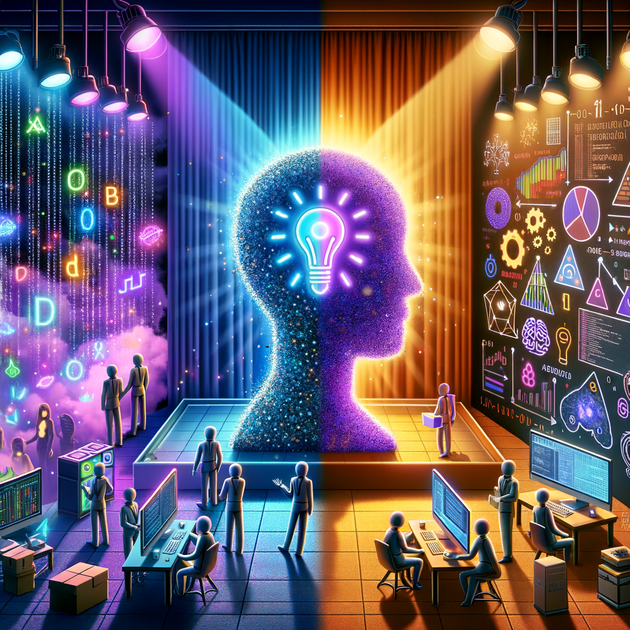The Myth of Genius Algorithms: Why Common AI Approaches Often Suffice
Have you ever been dazzled by the claim of a “genius” algorithm? It’s a phrase that crops up frequently in tech ads and news headlines. The term evokes an image of groundbreaking, almost magical software that can solve any problem thrown at it. But is this idea of genius AI really as prevalent as we’re led to believe? Spoiler alert: It’s not.
Beyond the Hype: The Reality of Everyday AI Solutions
While revolutionary advancements like OpenAI’s GPT-3 deserve the spotlight they receive, they are the exception rather than the rule. For every celebrated AI innovation, there are thousands of AI implementations that rely on tried-and-true algorithms like Convolutional Neural Networks (CNNs), Random Forests, or even logistic regression.
The truth is, most AI tasks can be efficiently tackled using these standard algorithms, which are accessible and well-documented. Investing substantial resources in pursuing a so-called genius solution often translates to diminishing returns.
The Marketing Mirage: Genius Algorithms as a Selling Point
It’s common to hear companies tout their “unique” or “special” algorithms to justify higher prices or to deter competitors. But let’s unpack this a bit more critically. These genius algorithms are usually marketing messages aimed at crafting an image of inaccessibility and exclusivity rather than true innovation.
In reality, much of the AI landscape is populated by commonly used algorithms. Technologies like TensorFlow and Scikit-learn make powerful AI tools available to even novice developers, democratizing access to these technologies.
Demystifying AI: Making AI Accessible for All
The aim of this article aligns with our broader mission: to demystify AI. By debunking the myth of the genius algorithm, we hope to make AI more accessible. If understanding and using AI is perceived as attainable, more people and businesses will take the plunge into this transformative field.
The Role of Media: A Call for Responsible Reporting
Media plays a crucial role in shaping perceptions. Unfortunately, we’ve often seen news outlets fail to critically assess AI claims, contributing to the mystification of the field. Why should there be an Egypt correspondent but not an AI correspondent? AI is increasingly affecting our daily lives, yet it doesn’t get the scrutiny it deserves.
We hope the media gradually shifts towards more responsible coverage, helping to elevate public understanding rather than perpetuating myths.
The Future Landscape: Big Tech and Open Source
Looking ahead, the development of groundbreaking AI algorithms is likely to remain in the hands of industry giants like OpenAI, DeepMind, Google, Facebook, and Apple. These companies often release their findings to the public, enabling a broader ecosystem of developers to build on their work.
This trend suggests that claiming to have a “genius algorithm” will become even more dubious in the future. Instead, the focus should be on using available tools effectively.
Conclusion: The Power of Commonsense AI
As we navigate the AI landscape, it’s essential to approach grandiose claims with a healthy dose of skepticism. Standard algorithms, often underestimated, can usually handle the tasks at hand. By focusing on accessibility and practical application, we can unlock AI’s full potential for a wider audience.
